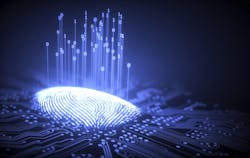At the annual CERAWeek, the focus is energy. Given that energy is the most attacked segment within U.S. critical infrastructure, there was plenty to talk about at last week’s event in Houston with regards to cybersecurity. So it was there that the Charter of Trust got a cooperation boost from some key players in the energy industry.
Siemens and eight co-founders launched the Charter of Trust last month at the Munich Security Conference. At CERAWeek, the global cybersecurity initiative welcomed three more members—AES, Atos and Enel—to widen the cooperative net of industry expertise aimed at building trust in advancing digitalization. The three organizations are key players in the creation and distribution of energy, as well as active participants in furthering digital transformation in their respective spaces.
AES provides energy distribution and generation in 15 countries. “Our continued success depends on adapting to change, including utilizing new technologies,” commented Andrés Gluski, president and CEO of the Fortune 200 company. “A successful cyber attack would impact our ability to deliver electricity and a data breach could negatively affect our employees, customers and partners.”
As the name of the initiative implies, it is a central goal within the Charter of Trust to improve the confidence the industry has in increasing connectivity throughout their operations. The benefits of digitalization are too great to ignore, commented Leo Simonovich, vice president and global head of industrial cyber and digital security for Siemens, at the recent ARC Industry Forum in Orlando, Fla. “But it’s important to be connected smartly,” he added.
Indeed. The U.S. Department of Energy reported last year that the U.S. electricity infrastructure was in “imminent danger” from cyber attacks that are “growing more frequent and sophisticated.” As the number of cyber attacks worldwide continues to grow, the hardware and software that control critical infrastructure like electricity and gas have become high-value targets. A study of the U.S. oil and gas industry by Ponemon Institute found that operational technology (OT) cyber attacks now comprise 30 percent of all attacks in the U.S. oil and gas industry.
“Cybersecurity is the most important security issue of our time,” said Joe Kaeser, Siemens CEO. “Siemens is working with key partners in industry, government and society to promote the Charter of Trust to make our digital world more secure. The transformational opportunities that exist for society and industry can only be realized if we all have confidence in—and can rely on the security of—our data and connected systems.”
Atos provides products and services focused on digital transformation across various business sectors, including energy and utilities. “Atos is fully engaged in the digitalization of all areas of the economy,” said Thierry Breton, chairman and CEO for Atos. “Cybersecurity is a crucial component and enabler for this transition.” Atos has been working closely with Siemens, Breton added, to developed digital cybersecurity solutions.
With 90 percent of the U.S. power system privately held, cooperation and collaboration among companies and other organizations is paramount to maintain a secure infrastructure. The Charter of Trust aims to build collaboration within industry to address three primary goals: to protect the data of individuals and businesses; to prevent harm to people, businesses and infrastructure; and to establish a reliable basis where confidence in a networked, digital world can take root and grow.
“Cooperation is key to effectively prevent and manage cyber risks,” said Yuri Rassega, chief information security officer for Enel Group, Europe’s largest power company in terms of market capitalization. “In today’s world, technology is becoming increasingly disruptive, making the cyber threats we face all the more frequent and sophisticated. In past years, Enel has been working to adopt a systemic vision that takes into account both business drivers and IT/OT/IoT systems-specific protection objectives, defines a risk-based strategy and drives a cybersecurity-by-design model, boosting the resilience of infrastructure and applications to face cyber threats and risks.”
By signing the Charter of Trust, Rassega added, Enel is formalizing its commitment to an increasingly coordinated approach to cybersecurity.
About the Author
Aaron Hand
Editor-in-Chief, ProFood World

Leaders relevant to this article:
